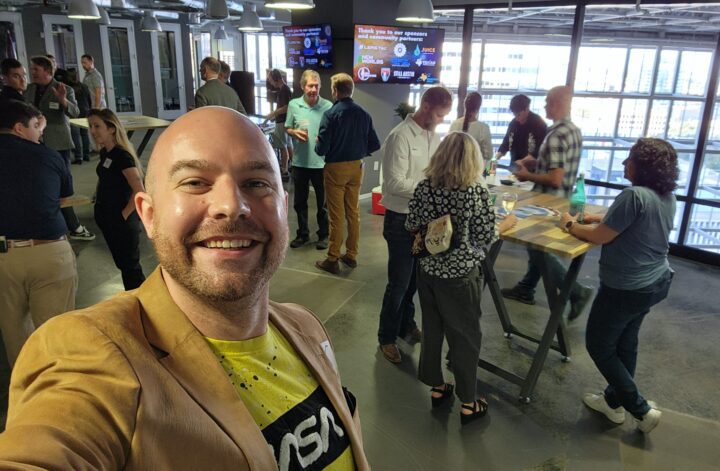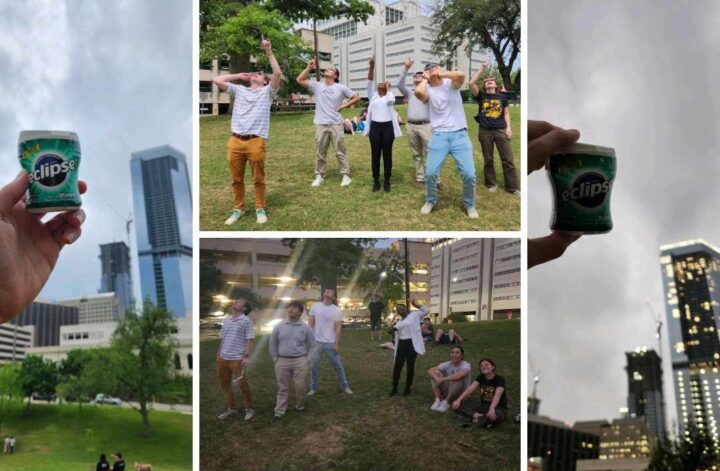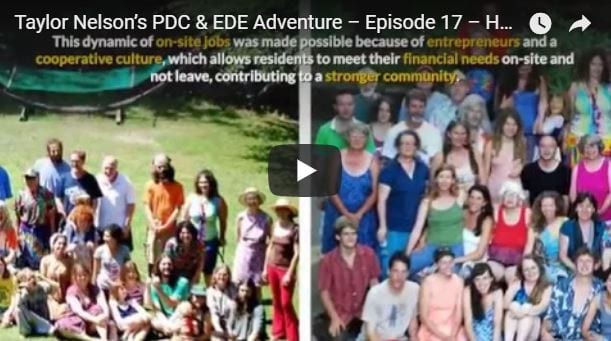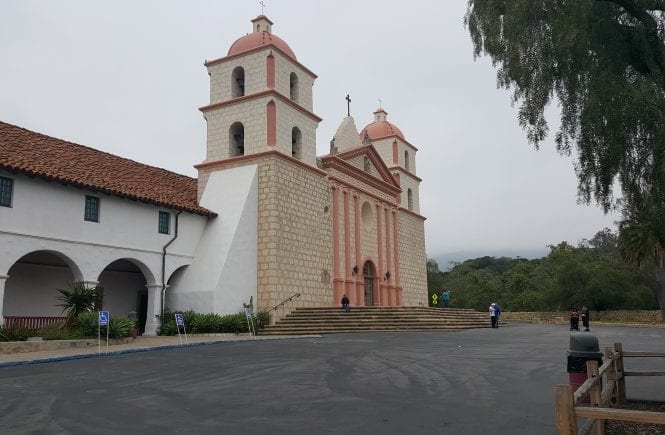This month’s Ecosystem Space meetup at Capital Factory once again highlighted why the Austin Metro is quickly becoming a hub for space innovation. The energy in the room was both inspiring and pragmatic — a mix of engineers, educators, entrepreneurs, and advocates all united around a central challenge: how do we grow and sustain the space workforce in Texas?
The event topic centered on Space Workforce Development, which brought together thought leaders and innovators who understand that the future of the space industry relies not only on rockets and research, but on people and skilled trades. The discussion focused on identifying the STEM and trade skills that “Big Space” companies and agile startups alike need to thrive, and how Texas can position itself as a leader in developing that talent.
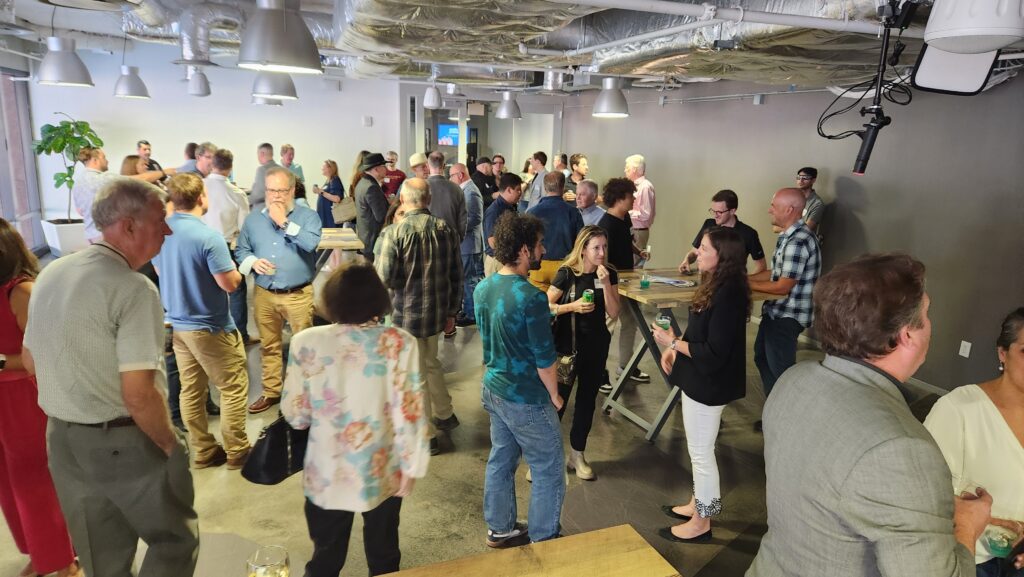
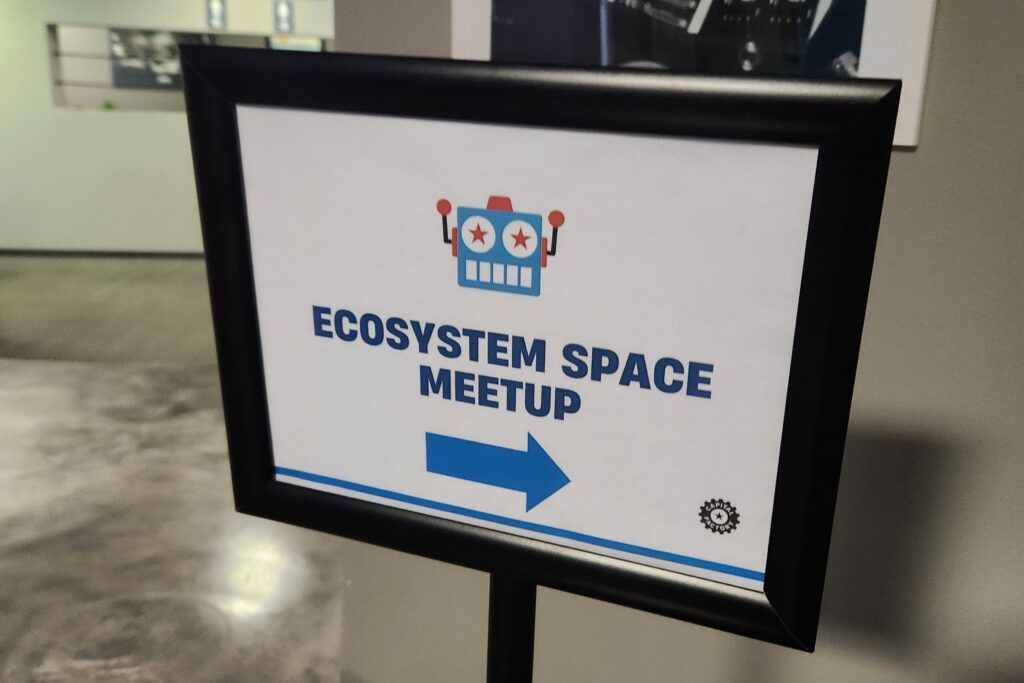
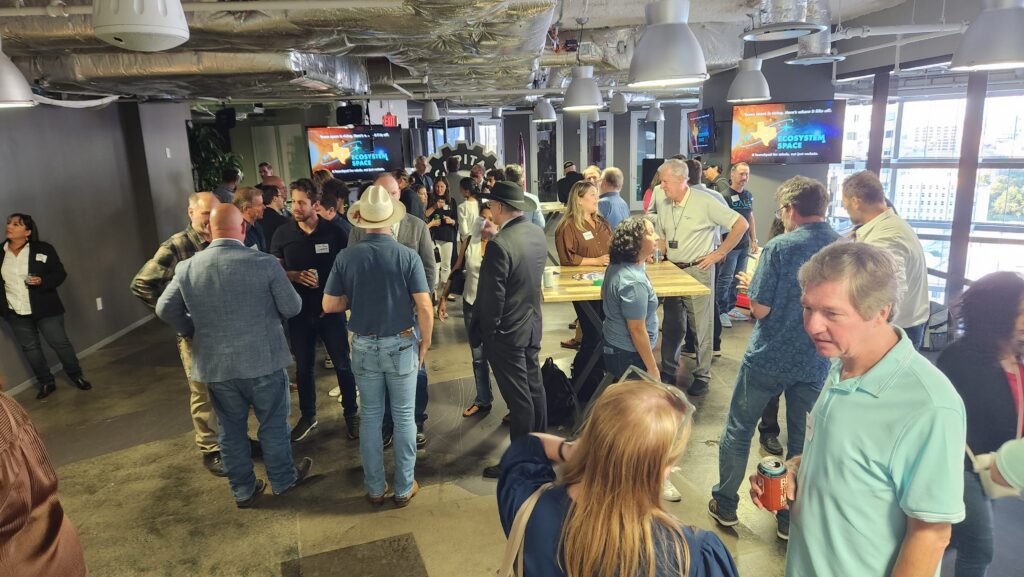
Closing the Space Skills Gap
Speakers and attendees dug into one of the most pressing issues in the Texas space ecosystem — the skills gap between the existing workforce and the rapidly evolving needs of the industry. As commercial space ventures expand across the state, demand for highly technical and interdisciplinary roles is soaring. The need goes far beyond astronauts and aerospace engineers; it now includes specialists in robotics, data science, cybersecurity, systems integration, and advanced manufacturing.
Speakers emphasized that solving this challenge requires intentional collaboration between educators, employers, and workforce programs. Universities and technical schools can adapt curricula to align with the hands-on demands of today’s missions, while workforce development incubators and community organizations can provide transition pathways for veterans, career changers, and students eager to break into the field.
It was encouraging to hear how groups like SWIFT (Space Workforce Incubator for Texas) are actively mapping these career paths — connecting talent to opportunity and ensuring that Texans are prepared for meaningful, well-paying roles in the expanding space economy.
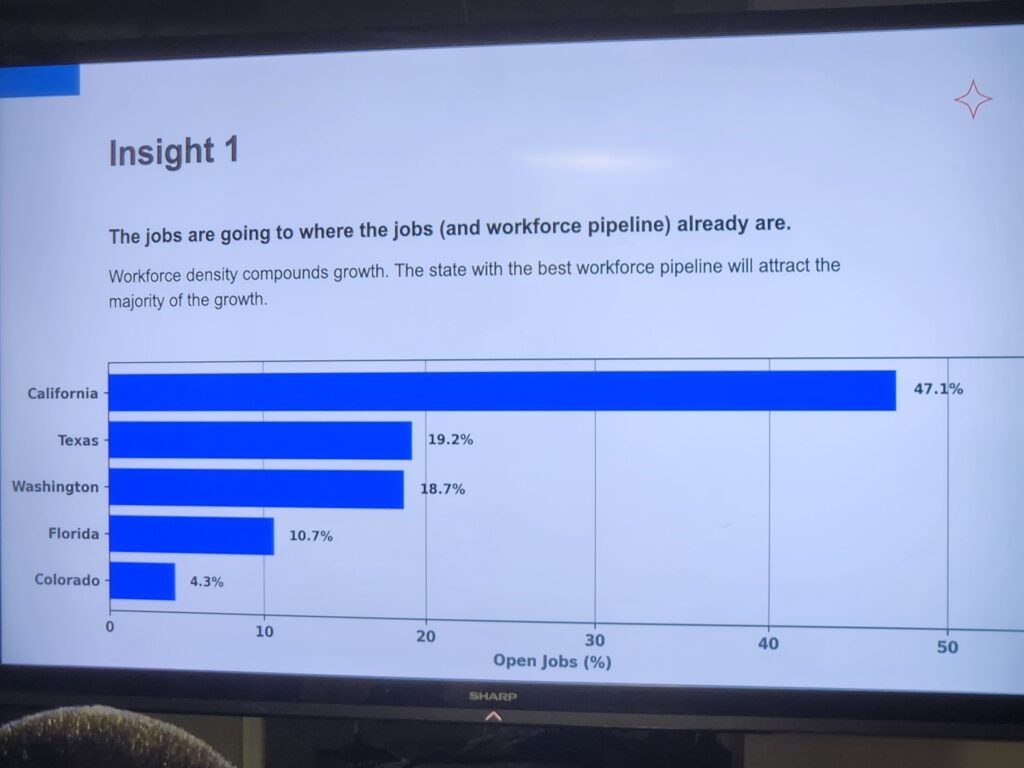
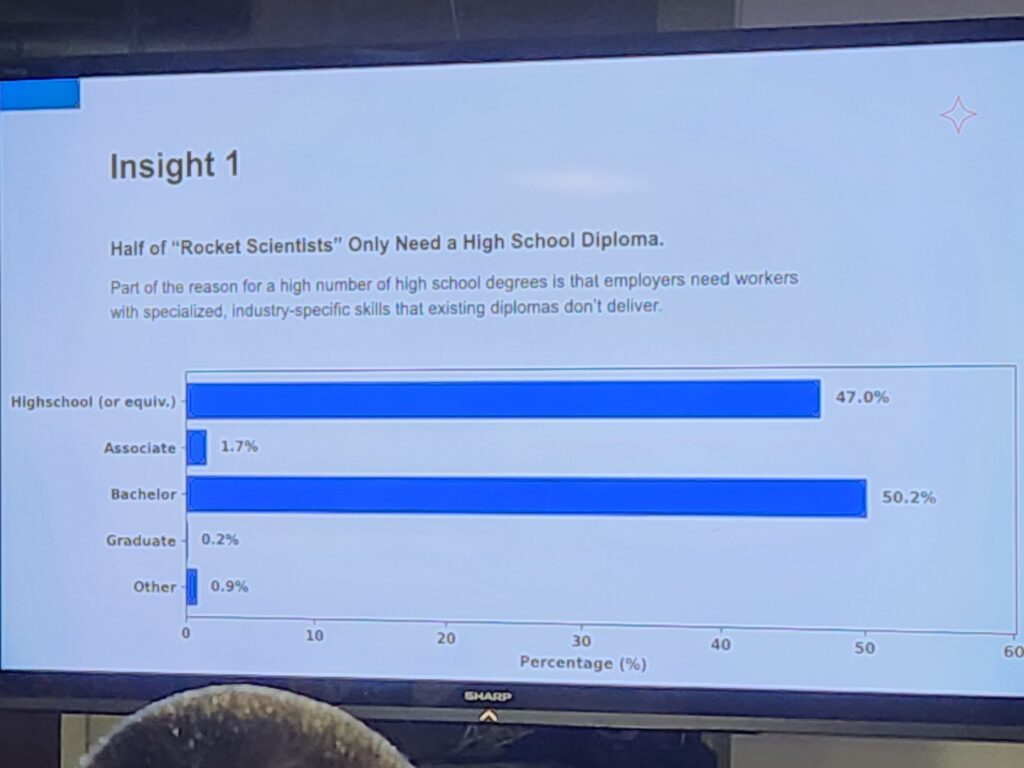
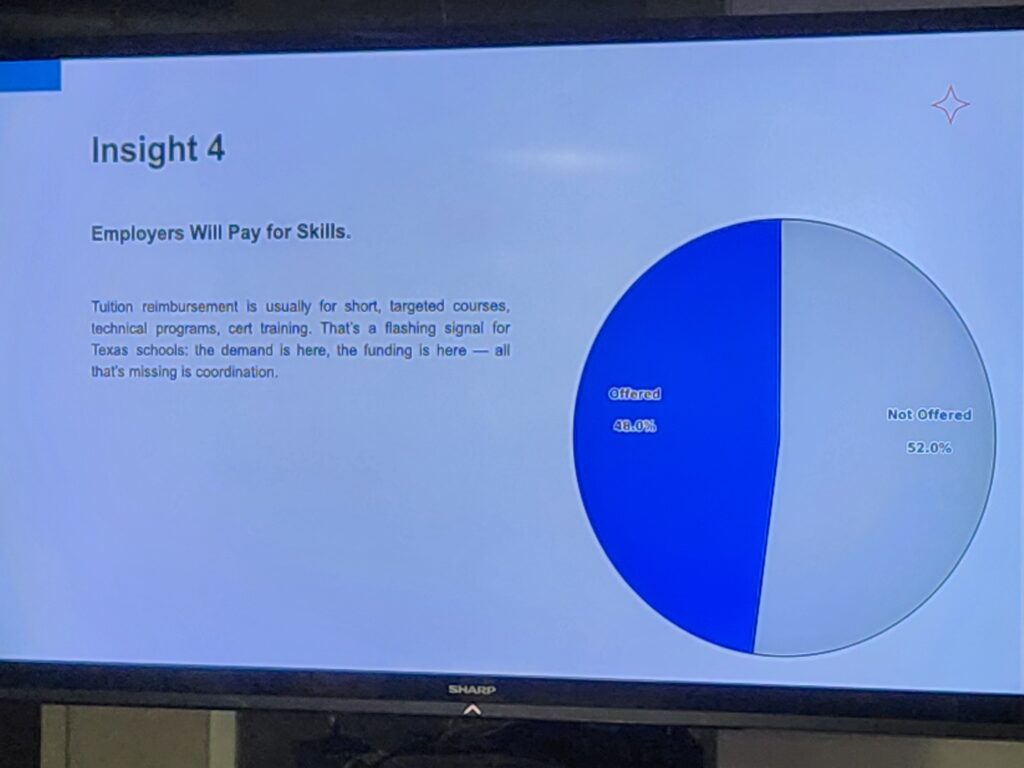
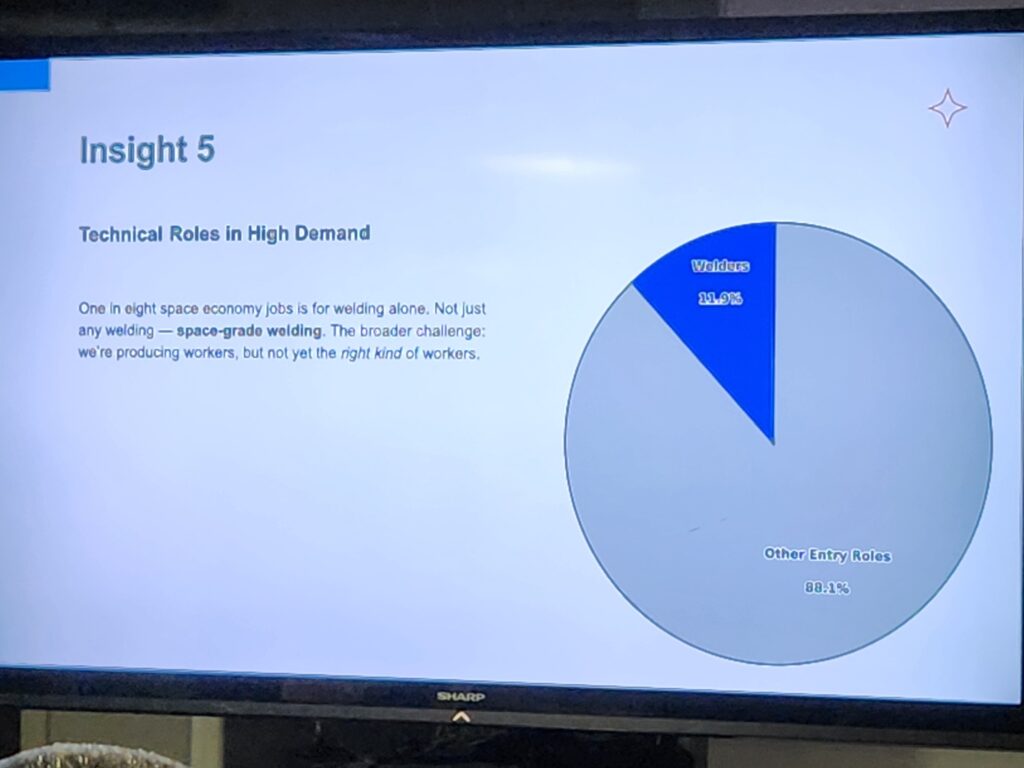
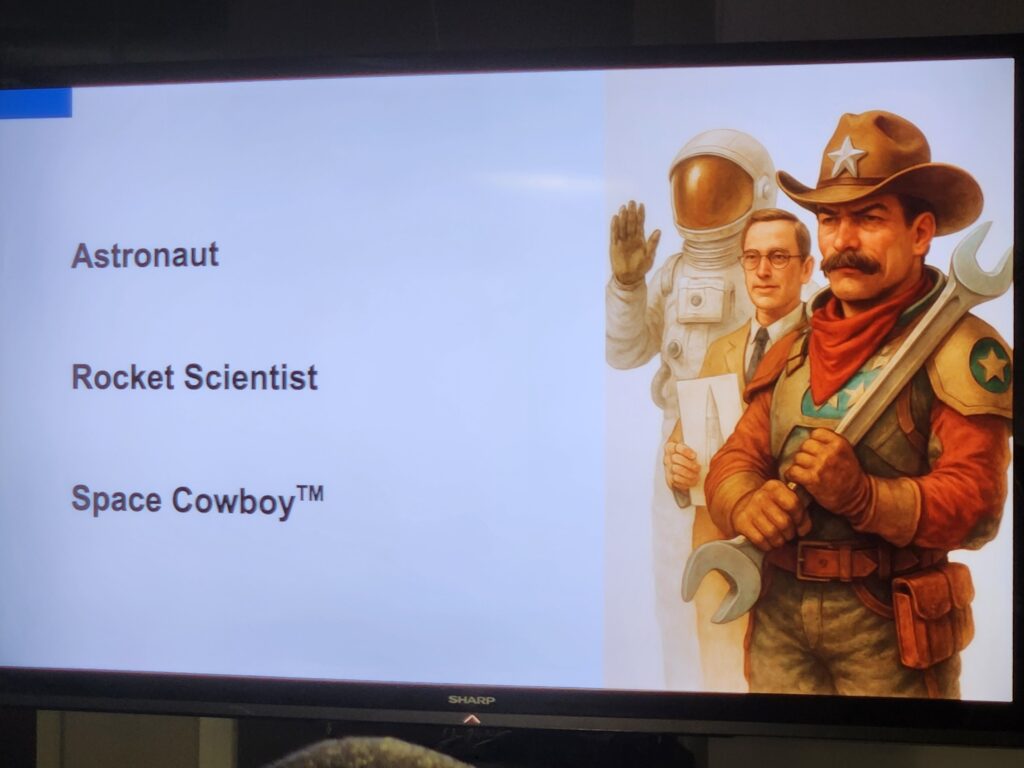
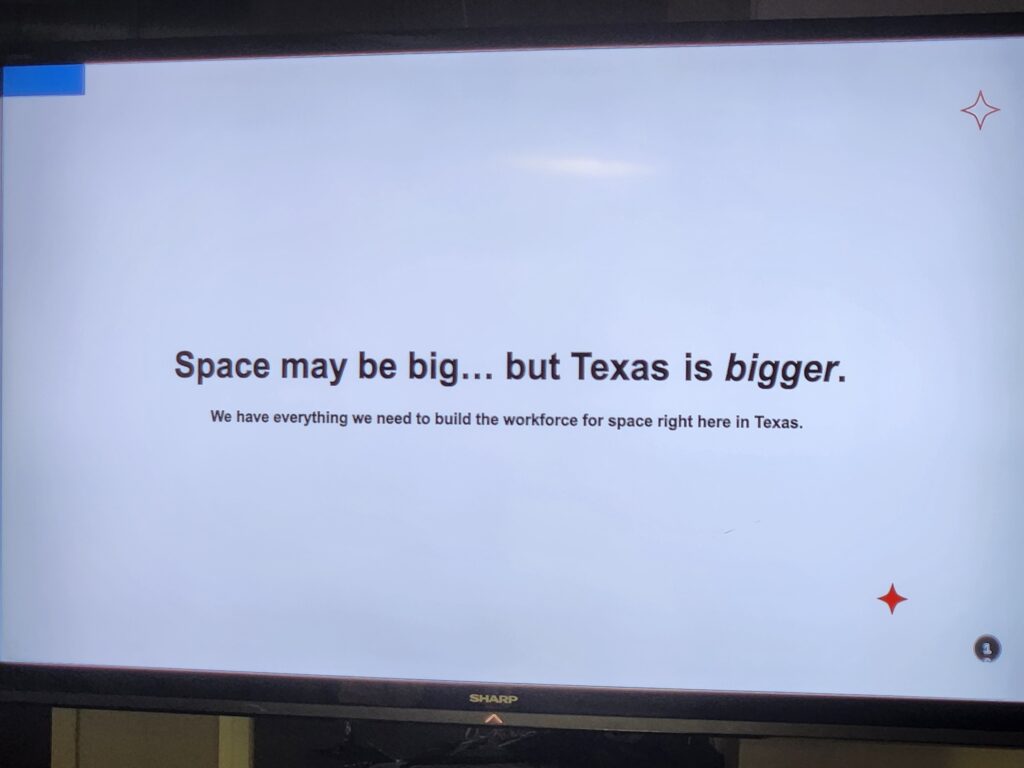
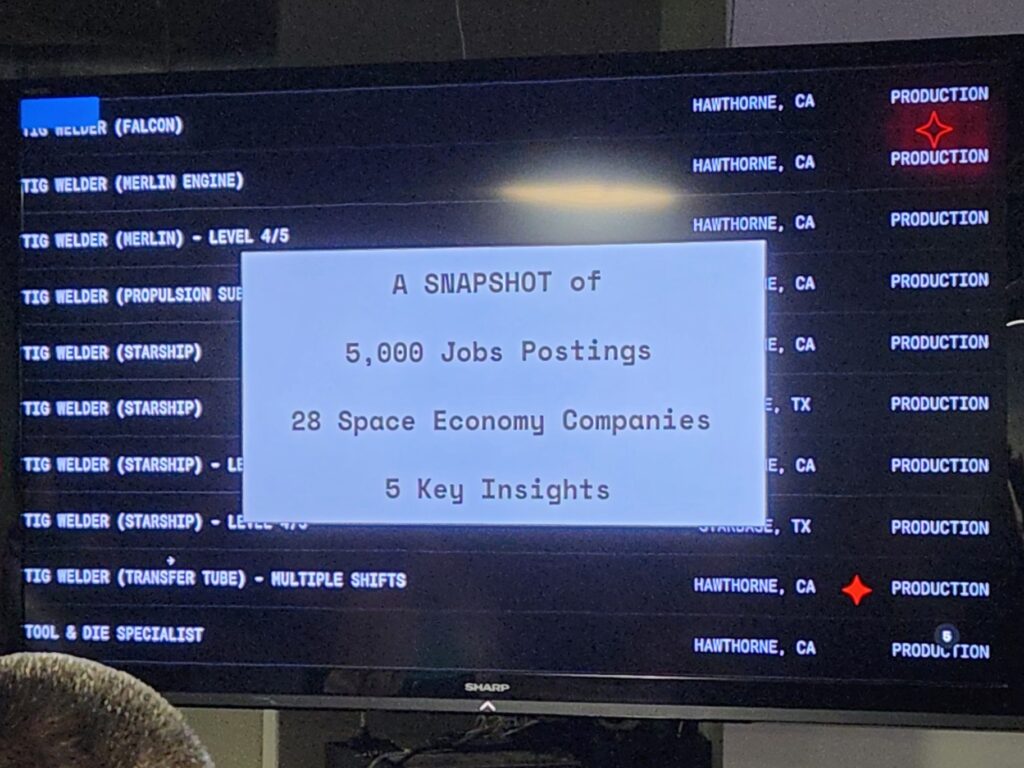
Community Collaboration and Momentum
One of the most striking aspects of Ecosystem Space is its sense of community. It’s not just a networking event — it’s an ecosystem in itself, where visionaries, innovators, and disruptors exchange insights that drive tangible progress. Conversations ranged from policy and education to entrepreneurship and cross-sector collaboration, underscoring how deeply interconnected the future of space truly is.
This month’s event was hosted by SWIFT and Opportunity Austin, with support from generous sponsors and partners who continue to nurture this growing network. LSAS Tec USA serves as the annual sponsor, alongside Capital Factory, Juice Consulting, Starbase Brewing, and Still Austin Whiskey — all of whom helped create a relaxed, inviting environment that encouraged meaningful dialogue. Community partners New Worlds, Space Force Association (SFA), Texas Space Alliance, and New Space Hub were also in attendance, representing the collaborative backbone that keeps this movement thriving.
The evening even included some creative flair, with musical vibes from Jensen Truly. That balance between professionalism and passion is what makes Ecosystem Space feel distinct — equal parts innovation meetup and mission briefing.
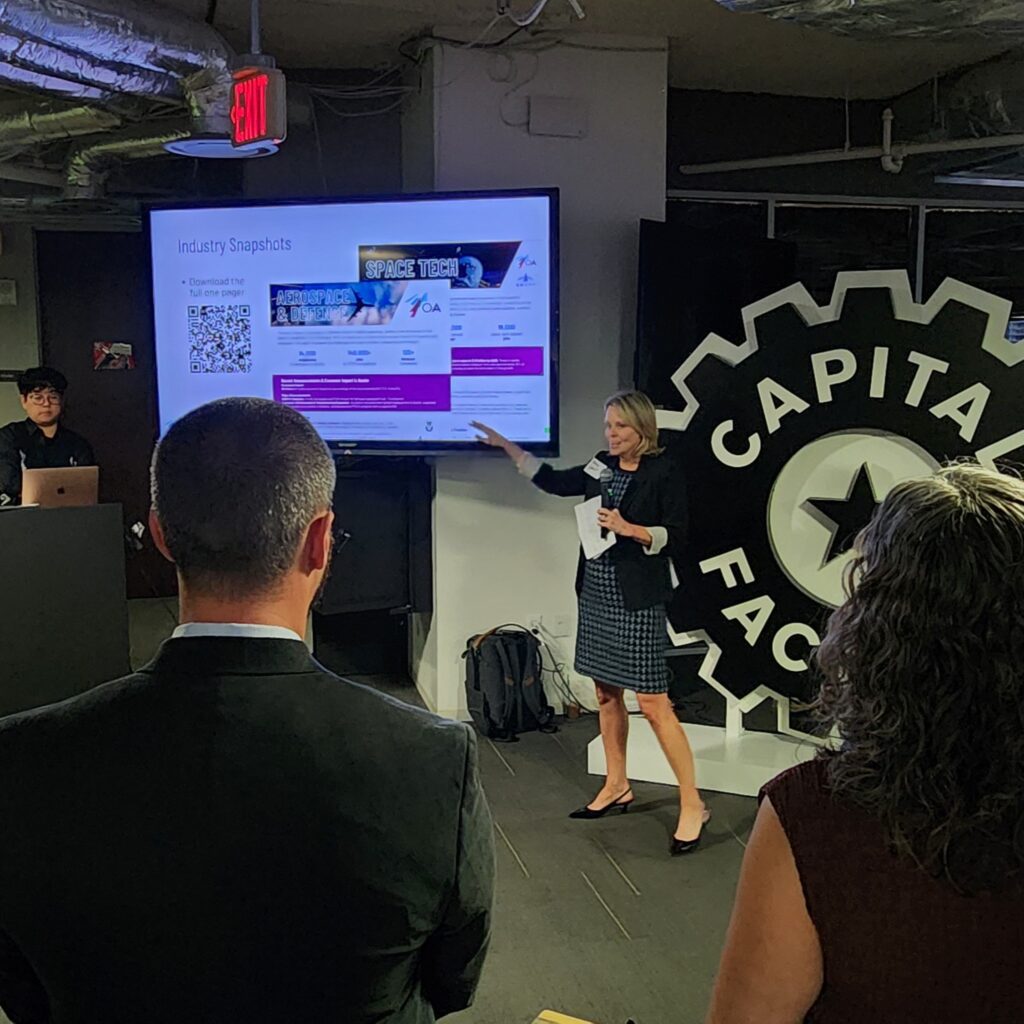
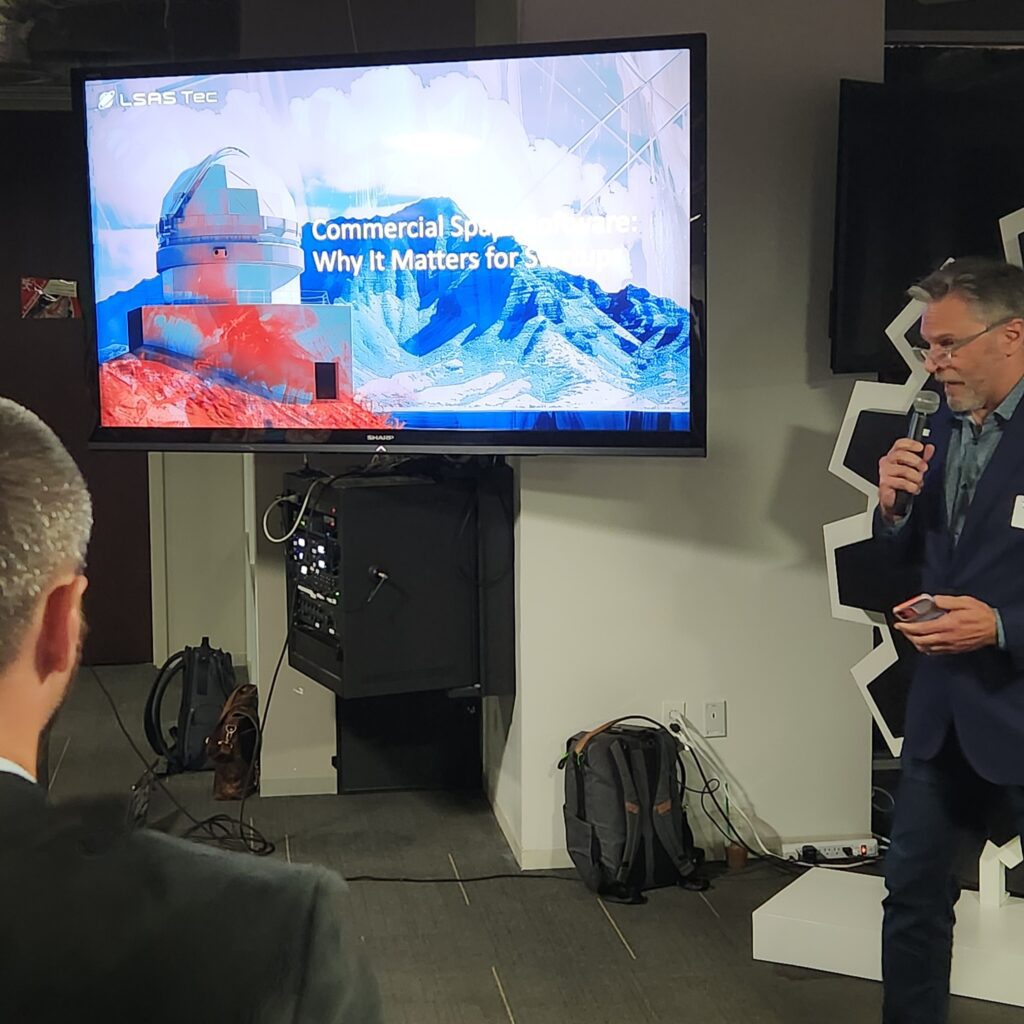
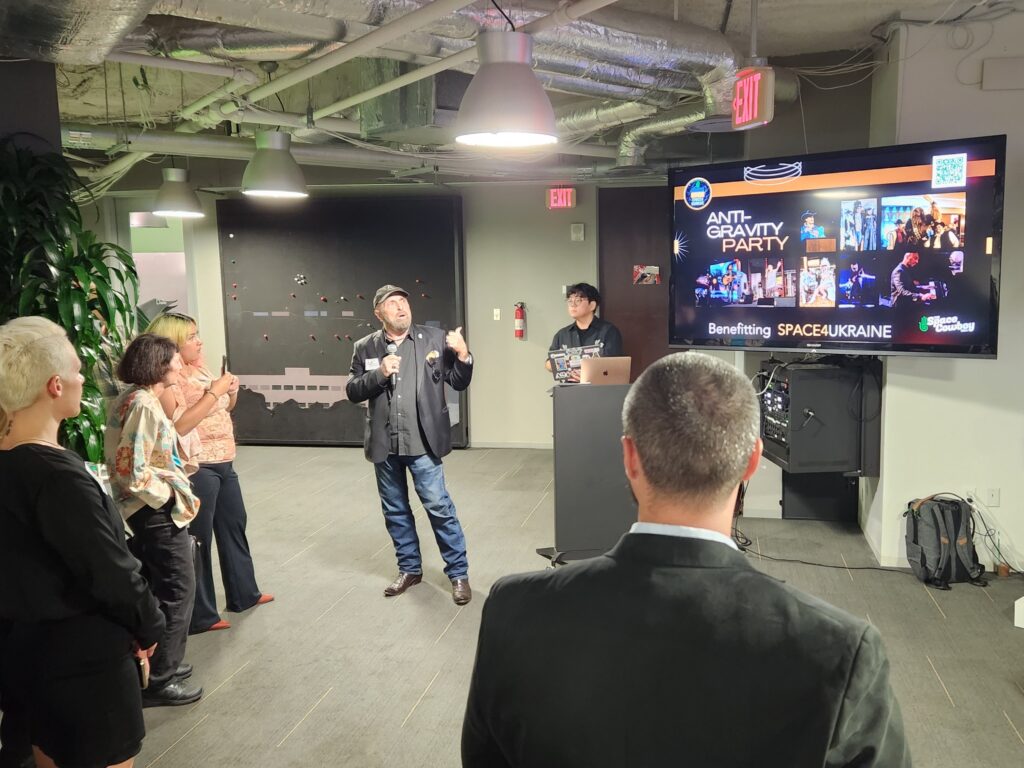
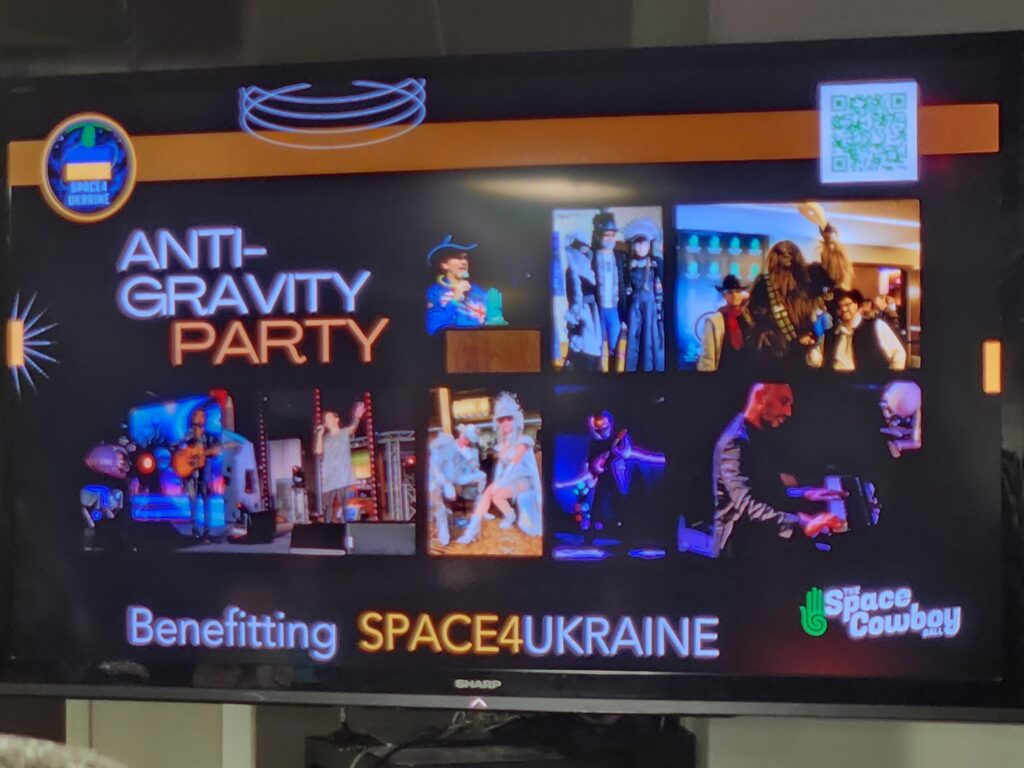
Looking Ahead
As Texas continues to position itself as a national hub for aerospace innovation, events like this serve as crucial catalysts for growth. They spark collaboration, shape workforce strategies, and bring together people from across disciplines who share a common goal: expanding access to the opportunities orbiting the new space economy.
The insights shared reaffirmed that the future of space in Texas depends on connection — between education and employment, research and industry, and ideas and action. The excitement in the room made it clear that momentum is building, not just for projects and startups, but for a statewide movement committed to cultivating the next generation of space professionals.
I left the event both inspired and optimistic. The conversations weren’t just about technical innovation — they were about empowerment, inclusion, and collaboration. Texas has the talent, the drive, and the community to shape the future of space, and gatherings like Ecosystem Space are helping chart the course forward.
Ecosystem Space meets every second Thursday of the month at Capital Factory. If you’re part of the space industry — or simply curious about how Texas is helping lead the next wave of innovation — it’s worth attending, listening, and contributing to the dialogue shaping our place among the stars.
*Content was generated with AI based on my notes and direction, then edited and refined by me for accuracy.

